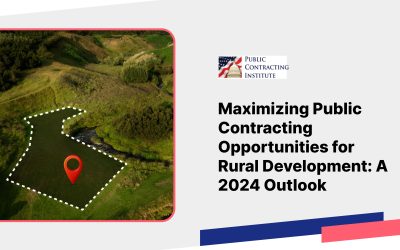The U.S. Forest Service manages our national forests, which includes organizing and administering timber sales. These sales result in government contracts—but in reverse—the timber companies bid a price they will pay the government for the right to remove (and presumably sell) the timber. Generally, the high responsible bidder in a timber sale is the awardee. This case address when a timber contract is formed.
After reviewing two prospectuses for timber sales in two areas of the Plumas National Forest in California, Pew Forest Products submitted two bids. See Pew Forest Products v. U.S., COFC No. 09-814C (May 7, 2012). On June 26, 2007, the contracting officer opened the bids and declared Pew the high bidder on both. Because of negotiations with environmental groups, the Forest Service did not make award until two months later, by providing a letter on August 31, 2007 which stated that Pew’s “bid has been accepted and you are hereby awarded the timber sales contract.” Although Pew completed logging operations in one area in January 2008, it never began logging operations in the other because it believed the area could not be logged profitably under the 2007 contract. On August 29, 2008, Pew submitted a claim seeking damages for losses as a result of the two month delay.
The fundamental question here is: “when did the timber sales contracts come into existence?” Pew claimed the date was June 26, 2007, when bids were opened and it was declared the high bidder. The government says the contracts were formed on August 31, 2007, when it accepted Pew’s offer. It is textbook that in order for there to be a contract, there must be a mutual intent to contract, including an offer, acceptance and consideration. Chattler v. U.S., 632 F. 3d 1324, 1330 (Fed. Cir. 2011). In addition, the government representative who enters the agreement must have actual authority to bind the U.S.
The court noted that opening a bid was not the same as acceptance. Even the bid form used by Pew indicated that the bidder would accept an award “if its bid is accepted within 90 days after bid opening.” Merely opening the bid and announcing the amount of the bid is not the same as accepting it. The court also noted that “no acceptance mean[s] no contract.” Fletcher-Harlee Corp. v. Pote Concrete, 482 F. 3d 247, 251 (3d Cir. 2007). And there was nothing in the documents that manifested the “unambiguous acceptance” required to create a binding contract. Peninsula Grp. Capital v. U.S., 93 Fed. Cl 720, 729-30 (2010). The court concluded that the both timber contracts arose no earlier than August 31, 2007, when the Government formally accepted Pew’s bids.
The Takeaway: There is a big difference between a letter from a contracting officer “accepting” your offer (bid or proposal) and indicating that a contract form will soon be sent to you for signature, and a letter from a contracting offer stating “the government intends to accept your bid or proposal.” An unqualified acceptance letter forms a contract based on the solicitation and your bid or proposal. A letter of intent is not binding. It is well settled that the “unexpressed, subjective, unilateral intent of one party is insufficient to bind the other contracting party …” Firestone Tire & Rubber Co. v. United States, 444 F.2d 547, 551 (Ct. Cl. 1971). Be sure that a warranted contracting officer has accepted your proposal or bid, or else you do not have a contract.
For other helpful suggestions on government contracting, visit: Richard D. Lieberman’s FAR Consulting at https://www.richarddlieberman.com/, and Mistakes in Government Contracting at https://richarddlieberman.wixsite.com/mistakes

